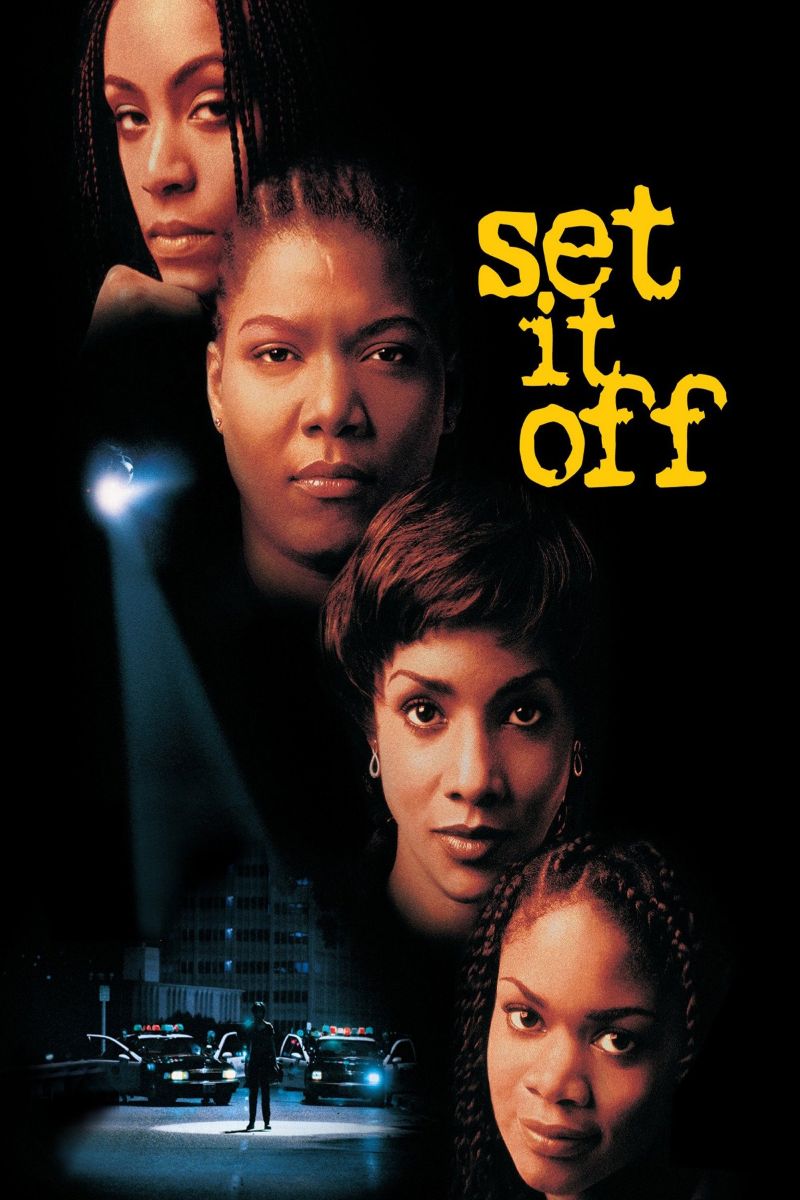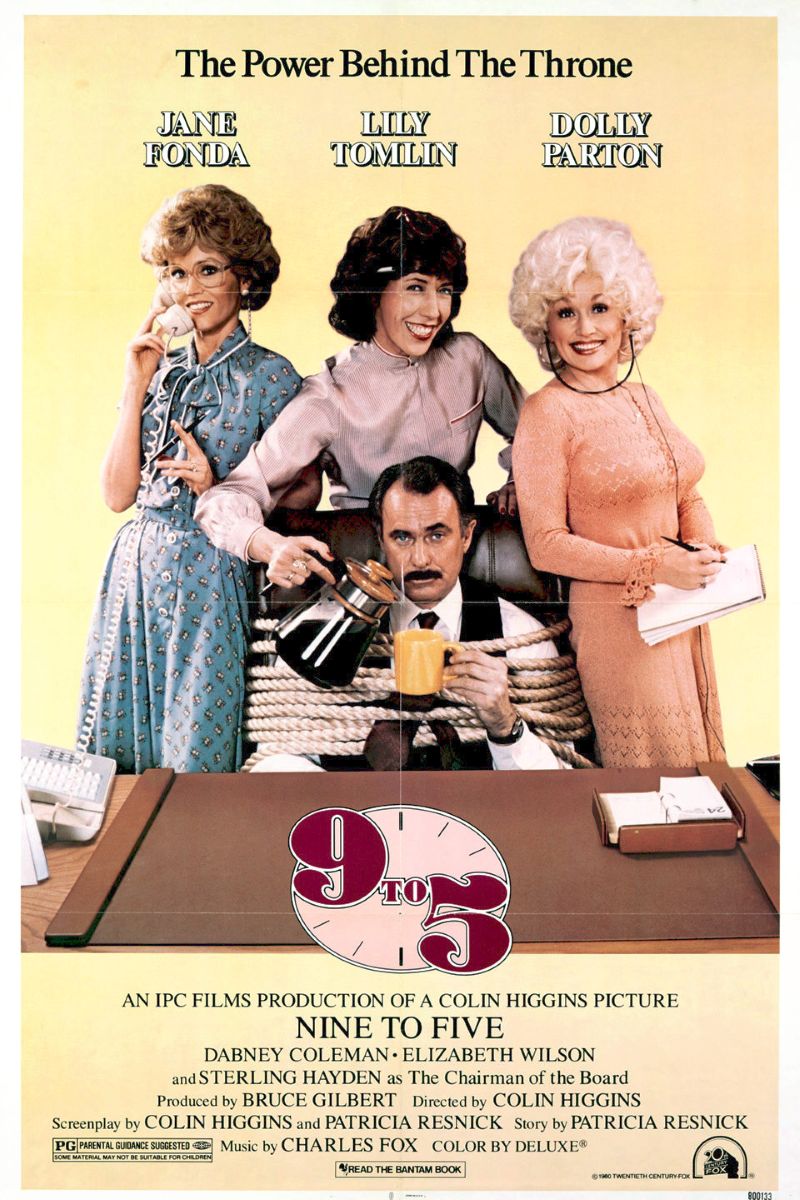
Set It Off
Set It Off
A crime action film about four African American women from Los Angeles' underclass who team up to rob banks out of desperation. This 1996 classic powerfully depicts the triple oppression of race, class, and gender, as well as the power of female friendship in desperate circumstances, becoming a milestone in Black feminist cinema.
Cast
Related Topics
🎥 Film Analysis & Review
In the landscape of 1990s American urban cinema, “Set It Off” strikes like lightning, tearing through mainstream Hollywood’s systematic neglect of Black women’s experiences. Directed by F. Gary Gray, this crime action film is more than a bank robbery story—it’s an indictment of structural injustice in American society, a profound portrayal of Black women’s survival struggles, and a hymn to the power of female solidarity. The four protagonists—Stony, Frankie, Cleo, and T.T.—their desperate choices reflect the real situations of countless marginalized women, while their sisterhood illuminates humanity’s brilliance in the darkest moments.
Survival Under Quadruple Oppression
“Set It Off’s” uniqueness lies in its demonstration of the multiple intersecting oppressions faced by Black women. The oppressions of race, gender, class, and sexual orientation are not separate but interwoven, forming an impenetrable net that traps the protagonists in desperate circumstances. This intersectional analysis elevates the film beyond simple crime genre entertainment to become a profound sociological text.
Stony’s story (played by Jada Pinkett Smith) epitomizes the shattered American Dream. She works hard, trying to put her brother through college, hoping education will change their destiny. However, police brutality not only takes her brother’s life but destroys her last faith in the system. This plot directly addresses the racialized nature of American police violence—Black youth are seen as threats simply because of their skin color, their lives worthless in the system’s eyes.
Frankie’s experience (played by Vivica A. Fox) reveals workplace racial discrimination. She works at a bank but gets fired simply for knowing a robber, with no opportunity for appeal. This “guilty until proven innocent” mentality reflects Black people’s situation in American society—they must constantly prove their innocence while white people naturally enjoy presumption of innocence.
T.T. (played by Kimberly Elise) represents the plight of single Black mothers. She works desperately but still can’t afford childcare. When her child gets injured due to lack of supervision, Child Protective Services takes her child away for “negligence.” This system that punishes poverty particularly targets Black women, who must bear child-rearing responsibilities while facing economic pressure without social support.
Cleo: Groundbreaking Queer Representation
Cleo, played by Queen Latifah, stands as one of cinema history’s most important Black lesbian characters. In 1996, mainstream films rarely featured openly gay characters, let alone Black lesbians. Cleo’s very existence is revolutionary—she’s not a supporting character created to satisfy male gaze, nor a tragicized victim, but a complete, complex, vibrant individual.
Cleo’s masculine presentation—her clothing, behavior, speech patterns—challenges traditional gender norms. She refuses to perform expected feminine roles, not out of rebellion but out of authenticity. Her existence reminds us that gender expression diversity shouldn’t be pathologized or marginalized but accepted and celebrated.
More importantly, Cleo’s sexual orientation is never her “problem” or “burden.” Her friends completely accept her identity—this unconditional acceptance was extremely rare in contemporary cinema. This portrayal provided valuable positive representation for Black LGBTQ+ communities, telling them: you can be Black, queer, and still be loved and accepted.
Revolutionary Power of Female Friendship
The friendship among the four protagonists forms the film’s emotional core. Their relationship isn’t built on competition or jealousy but on mutual understanding, support, and unconditional love. This sisterhood becomes stronger when facing external pressure, serving as their spiritual pillar against unjust systems.
The film’s most moving scenes often occur during the four women’s everyday moments together—drinking, dancing, joking, comforting each other. These scenes demonstrate the complexity and depth of Black female friendship; they share joy but more importantly bear pain together. In a society that constantly demeans and marginalizes them, each other’s companionship becomes essential for survival.
Their decision to rob banks together is less crime than the ultimate expression of solidarity. They know the risks and possible consequences, but choose to face them together because they understand that in this hostile world, only each other can truly be depended upon.
Violence as Language of Resistance
The film’s treatment of violence is complex and contradictory. On one hand, violence is the oppressor’s tool—police guns kill Stony’s brother, systemic violence destroys their lives. On the other hand, violence becomes the oppressed’s language of resistance—when all legal avenues are blocked, robbery becomes their only choice.
This moral ambiguity is one of the film’s strengths. Rather than simply glorifying or condemning violence, it places it within specific social contexts. The four protagonists’ violent acts stem not from greed or malice but from desperation and survival instinct. The film invites audiences to consider: when systemic injustice leaves no way out, does breaking the law become legitimate resistance?
The choice of banks as robbery targets also carries symbolic meaning. Banks represent capitalism’s core, symbols of the economic structure causing their poverty. Robbing banks isn’t just about money but symbolic attack on the entire unjust system.
The Black “Thelma & Louise”?
Many critics compare “Set It Off” to “Thelma & Louise,” calling it the “Black Thelma & Louise.” This comparison is both reasonable and limited. Both films tell stories of women driven to crime by injustice and explore female friendship’s power.
But “Set It Off’s” uniqueness lies in its racial perspective. While white women face real gender oppression, Black women face dual oppression of race and gender. The film’s four protagonists must fight not only patriarchy but white supremacy, making their struggle more complex and difficult.
Additionally, “Set It Off” focuses more on economic factors. “Thelma & Louise’s” protagonists have some economic foundation; their escape is more spiritual liberation. “Set It Off’s” protagonists are truly economically disadvantaged; their crime directly stems from survival needs.
Inevitable Tragic Ending
The film’s ending is tragic—Cleo dies in a shootout, others pay heavy prices. This ending isn’t to satisfy Hollywood moral preaching but represents clear-eyed recognition of reality. In a structurally unjust society, individual resistance often ends in tragedy.
Cleo’s death is particularly heartbreaking. She’s the bravest and most uncompromising of the four, which makes her the primary target of systemic violence. Her death isn’t because she “deserved it” but because she refused to submit. This refusal is seen as an intolerable threat by the system.
However, even in tragedy, the film retains hope. Stony ultimately escapes; though she loses everything, she survives. This open ending suggests that while individual resistance may fail, the spirit of resistance continues, inspiring the next generation to continue fighting.
Music as Cultural Resistance
The film’s soundtrack deserves attention. Songs by Black female artists including En Vogue, Queen Latifah, and Brandy not only provide emotional tone but establish the film’s cultural identity. These songs celebrate Black women’s strength, beauty, and resilience, perfectly echoing the film’s themes.
Particularly the title track “Set It Off” becomes a hymn of resistance. The lyrics’ anger and determination reflect the protagonists’ mindset while resonating with countless audiences facing similar struggles. Music becomes another form of resistance, conveying indomitable spirit through rhythm and rhyme.
Critique of Neoliberalism
“Set It Off” was released in 1996, at the height of American neoliberal policies. Welfare cuts, job outsourcing, union decline, and other policies devastatingly impacted the working class, particularly Black working class. The four protagonists’ predicaments are direct consequences of these policies.
The film critiques the “personal responsibility” myth. Mainstream discourse often blames poverty on individual laziness or incompetence, but the film shows four hardworking, intelligent women trapped by systemic barriers. Their failure isn’t personal but systemic. This analysis remains relevant today, particularly as wealth inequality continues expanding.
Influence and Legacy
“Set It Off” profoundly influenced subsequent films. It proved that Black women-centered films could achieve commercial success (over $41 million worldwide box office on a $9 million budget), paving the way for later Black women’s cinema.
More importantly, it provided rare screen representation for Black women, particularly working-class Black women. Seeing their experiences taken seriously, their pain acknowledged, their resistance understood—this was significant for long-ignored communities.
The film also influenced hip-hop culture. Many rap artists reference the film’s dialogue and scenes as symbols of resisting injustice. Cleo became an iconic figure in Black queer culture, her image inspiring countless people to courageously be themselves.
Contemporary Relevance
Nearly thirty years later, “Set It Off’s” themes remain urgent. Police violence, economic inequality, racial discrimination—these problems haven’t disappeared and in some ways have worsened. Contemporary social movements like Black Lives Matter and #MeToo continue conversations begun in the film.
The film reminds us that real change requires not just individual effort but structural transformation. The four protagonists’ tragedy shouldn’t be understood as consequences of their personal choices but as inevitable products of unjust systems. Only by changing oppressive systems can we prevent more tragedies.
Simultaneously, the film demonstrates solidarity’s power. When facing powerful oppression, solidarity among the oppressed is the most powerful weapon. The friendship among the four protagonists not only gave them courage to resist but strength to continue in darkness.
Masterpiece Beyond Genre
“Set It Off’s” ultimate achievement lies in transcending genre limitations to become a true work of social criticism. It packages profound social analysis in action film packaging, conveying serious political messages through entertainment. This balance allows the film to attract mainstream audiences while provoking deep thought.
F. Gary Gray’s directorial skill lies in not reducing the four protagonists to victims or heroes but crafting them as complex people. They have flaws and make mistakes, but their humanity is never degraded. This humanized portrayal enables audience empathy and understanding of their choices, even without approving their actions.
Conclusion
In that smoke-filled bank lobby, when four women raised their guns, they weren’t just robbing money but reclaiming stolen dignity. Though their resistance ended in tragedy, their courage and friendship forever shine with inextinguishable light, reminding every oppressed person that even in the darkest moments, the fire of solidarity and resistance never dies.
“Set It Off” stands as a testament to the complexity of survival under intersecting oppressions and the transformative power of solidarity among marginalized women. Through its unflinching portrayal of systemic injustice and its celebration of female friendship, the film continues to resonate with audiences seeking both entertainment and understanding of the ongoing struggles for justice and equality in American society.
🏆 Awards & Recognition
- • NAACP Image Award for Outstanding Motion Picture
- • MTV Movie Award nomination for Best Female Performance (Jada Pinkett Smith)
- • Independent Spirit Award for Best Debut Performance (Kimberly Elise)
⭐ Ratings & Links
Related Recommendations
讨论区
分享您的想法和观点
加入讨论
分享您的想法和观点
加载评论中...

